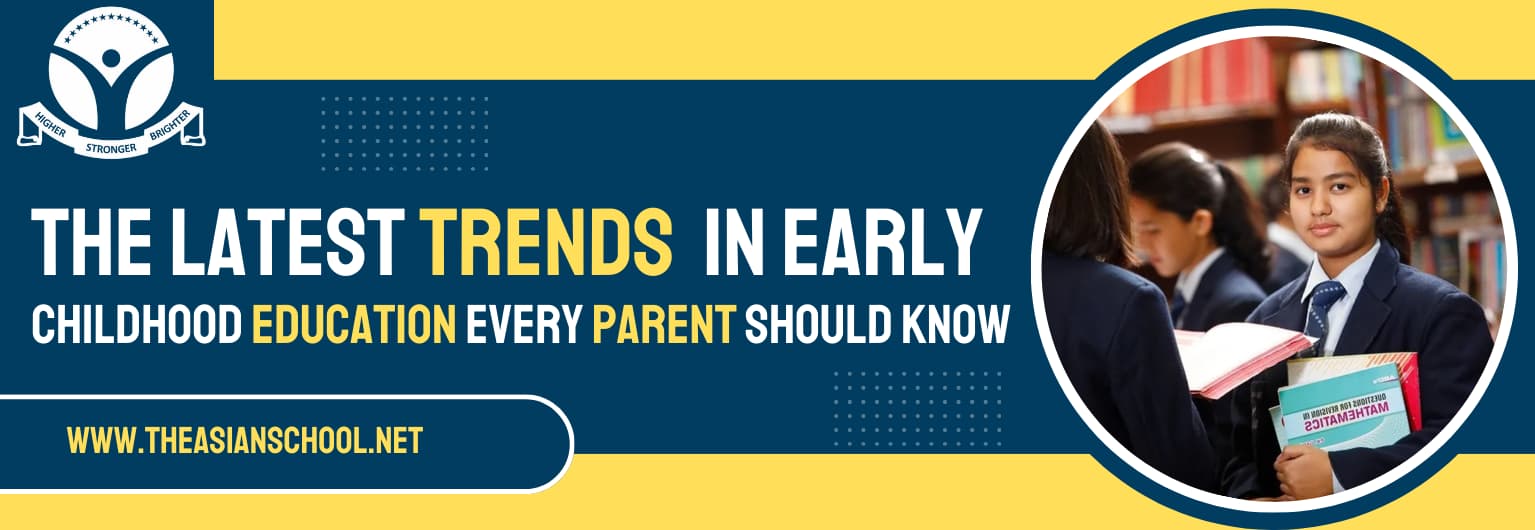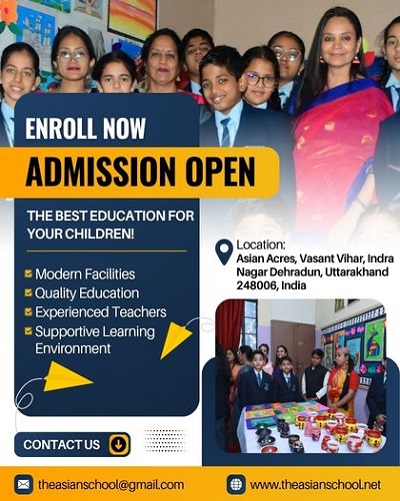In today’s rapidly transforming academic landscape, parents need to keep up with the updated early childhood schooling trends to deliver their children a powerful start. This article will give you a deeper insight into new teaching approaches to early childhood education, technical improvements, and academic trends that are influencing how young kids understand and grow. By understanding these trends, parents can make knowledgeable selections about their child’s education and support their comprehensive growth.
Let’s look at essential trends in early childhood teaching that are now shaping education experiences in the modern world.
- Trends in Early Childhood Education
- 1. Digital Literacy and Technology Integration
- 2. Focus on STEM Learning
- 3. Emphasis on Social and Emotional Learning (SEL)
- 4. Health and Physical Education
- 5. Multilingual Education
- 6. Environmental Awareness and Sustainability Education
- 7. NEP and K12 Collaborations
- 8. Assessment and Feedback Innovation
- 9. Child care
- 10. Real-world preparation
Trends in Early Childhood Education
Let’s have a deeper understanding of trends that are necessary for selecting the appropriate academic path and encouraging holistic growth at an early age.
1. Digital Literacy and Technology Integration
Technology is updating regularly, this is why training children how to utilize digital devices becomes more critical in early education. Schools are now integrating smart boards, tablets, and academic apps to make teaching more interactive and interesting. This method doesn’t replace traditional education methods but adds a technology-based component to enhance the learning experience. Parents should select programs combining screen time with hands-on activities to help their child grow effectively.
2. Focus on STEM Learning
STEM is a crucial part of early education childhood trends in today’s time. Teaching Science, Technology, Engineering, and Mathematics (STEM) in early childhood education is now a popular trend. Studies show that getting kids interested in STEM early can boost their critical thinking, curiosity, and problem-solving skills. Many preschools add activities like basic coding games, hands-on science experiments, and simple math puzzles to their programs. This early exposure helps children become more skilled in these areas and encourages a lasting interest in understanding how things work.
3. Emphasis on Social and Emotional Learning (SEL)
Social-Emotional Learning (SEL) is becoming a vital part of early childhood education. SEL programs in preschools enable children to learn essential skills like understanding others’ emotions, working nicely with others, and handling their feelings. These capabilities are essential for their happiness and victory both in school and later in life. Teachers are adding SEL activities to their everyday tasks that give kids a chance to enhance these skills via role-play, group tasks, and coaching conversations.
4. Health and Physical Education
Physical fitness and health are now important aspects of early childhood education. This involves not just physical exercises and sports but also understanding nutrition, hygiene, and mental fitness. The purpose is to create healthy habits early on for lifelong well-being and development. Schools are incorporating daily bodily exercises, lessons on nutritious eating, and mindfulness activities to help manage stress and enhance emotional fitness.
5. Multilingual Education
Teaching kids numerous languages from an early years is becoming more common in early childhood education. Understanding more than one vocabulary can boost cognitive skills, allow kids to concentrate better, and make them more flexible. Additionally, early exposure to extra languages can improve empathy. Parents must aim for schools in India that encourage multi-language programs or foreign language lessons to provide their kids with the benefit of multilingual education.
6. Environmental Awareness and Sustainability Education
As environmental sustainability becomes more critical, early childhood schooling programs are starting to concentrate on preparing kids for managing their surroundings. This possesses lessons on recycling, saving water, and appreciating nature. The Asian School are inculcating these lessons through hands-on activities like gardening, nature walks, and tasks that preserve resources. Learning these values early can help children develop an everlasting affection and sense of accountability for the environment.
7. NEP and K12 Collaborations
The National Education Policy (NEP) sets the approaches for K12 education in India with a strong emphasis on early childhood learning and education. Implementing the NEP will bring meaningful differences to India’s curriculum, teaching techniques, examinations, and overall strategy for teaching. It also promotes preschools and K12 schools to operate together. Instead of competing for the same group of young students, they can form partnerships to ensure the victory and development of both kinds of institutions.
8. Assessment and Feedback Innovation
The latest techniques of evaluating children’s progress are transforming now. Rather than depending only on traditional tests, teachers are using dynamic assessments that highlight development and ongoing knowledge. These include portfolio reviews, observational documents, and frequent feedback sessions, which offer a complete picture of a child’s development in various areas. These updated evaluation strategies support the teachers to create more personalized learning knowledge and help parents to be better updated regarding their kid’s improvement.
9. Child care
The difference between traditional daycare and preschools is becoming less clear. Preschools are now providing more complete childcare services with convenient hours to help working parents. Many preschools are also extending their services to include weekends and emergency care. In urban areas, there will likely be an increase in childcare facilities to cater to the needs of nuclear families.
10. Real-world preparation
It involves preparing the children for the ever-changing and complicated modern world. In addition to traditional education, students need to build social and emotional skills, problem-solving abilities, critical thinking, communication, general awareness, and practical life skills. Preschools strive to create activities that help develop these skills early on. including cultural exposure to broaden their understanding of the world. Such activities will create a strong foundation in the students for the future.
Conclusion
Early childhood education is shifting towards creating more inclusive, fascinating, and personalized education experiences that make children ready for future challenges. Parents must keep up with these trends as it is essential for making wise decisions that help their child’s growth. Choosing educational options that follow these modern techniques can significantly improve their child’s success and well-being during these early years of development.
Also Read: Top 10 Reasons Your Child Deserves the Best CBSE School Education














